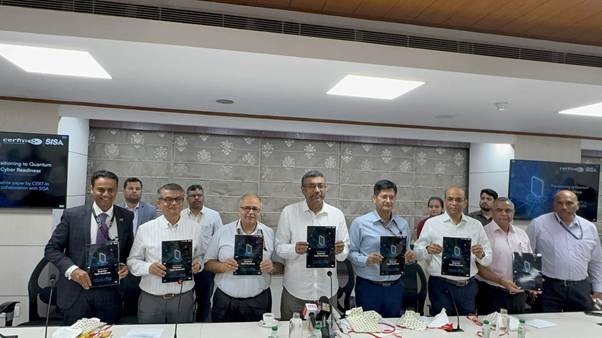India, a global leader in digital payments and online public services, faces an urgent new challenge—preparing for the cybersecurity risks posed by quantum computing. Recognizing that conventional encryption methods such as RSA and ECC may soon become obsolete, the Ministry of Electronics and Information Technology (MeitY), the Indian Computer Emergency Response Team (CERT-In), and SISA have launched a whitepaper titled “Transitioning to Quantum Cyber Readiness”.
This whitepaper offers a roadmap for organizations, especially in sectors like BFSI, healthcare, civil infrastructure, and defense, to begin transitioning toward quantum-resilient encryption models before traditional algorithms are compromised.
Anticipating the Inevitable: Bringing Forward the Risk Horizon
The whitepaper warns that advancements in quantum computing will soon make it possible to break traditional encryption. As digital-first economies like India become increasingly reliant on online data exchanges and financial transactions, the implications of quantum threats are severe.
CERT-In, MeitY and BITS Pilani Sign MoU to Strengthen India’s Cybersecurity Workforce
The document lays out practical steps for public and private organizations to assess their current cryptographic systems and begin migrating to post-quantum cryptography. It emphasizes proactive preparedness by aligning compliance, operational continuity, and cybersecurity risk management with the evolving digital landscape.
Voices of Leadership: Strategic Imperatives from MeitY and CERT-In
Shri S. Krishnan, Secretary of MeitY, emphasized during the launch, “Quantum readiness is a strategic imperative as we prepare for the disruptive potential of quantum technologies, especially in cybersecurity. This whitepaper provides the right ingredients to build resilience in India’s digital and AI-driven future.”
Dr. Sanjay Bahl, Director General of CERT-In, highlighted the collaborative nature of the initiative, stating, “CERT-In recognizes that quantum computing will fundamentally change the threat landscape. We must evolve our security frameworks to protect India’s expanding digital infrastructure. Our partnership with SISA showcases the importance of strategic public-private collaboration in building national preparedness.”
The whitepaper serves not only as a technical guideline but also as a learning document, combining strategic foresight with real-world application. It aims to foster a culture of cybersecurity maturity in regulated sectors while equipping organizations to face the quantum horizon with agility and confidence.



